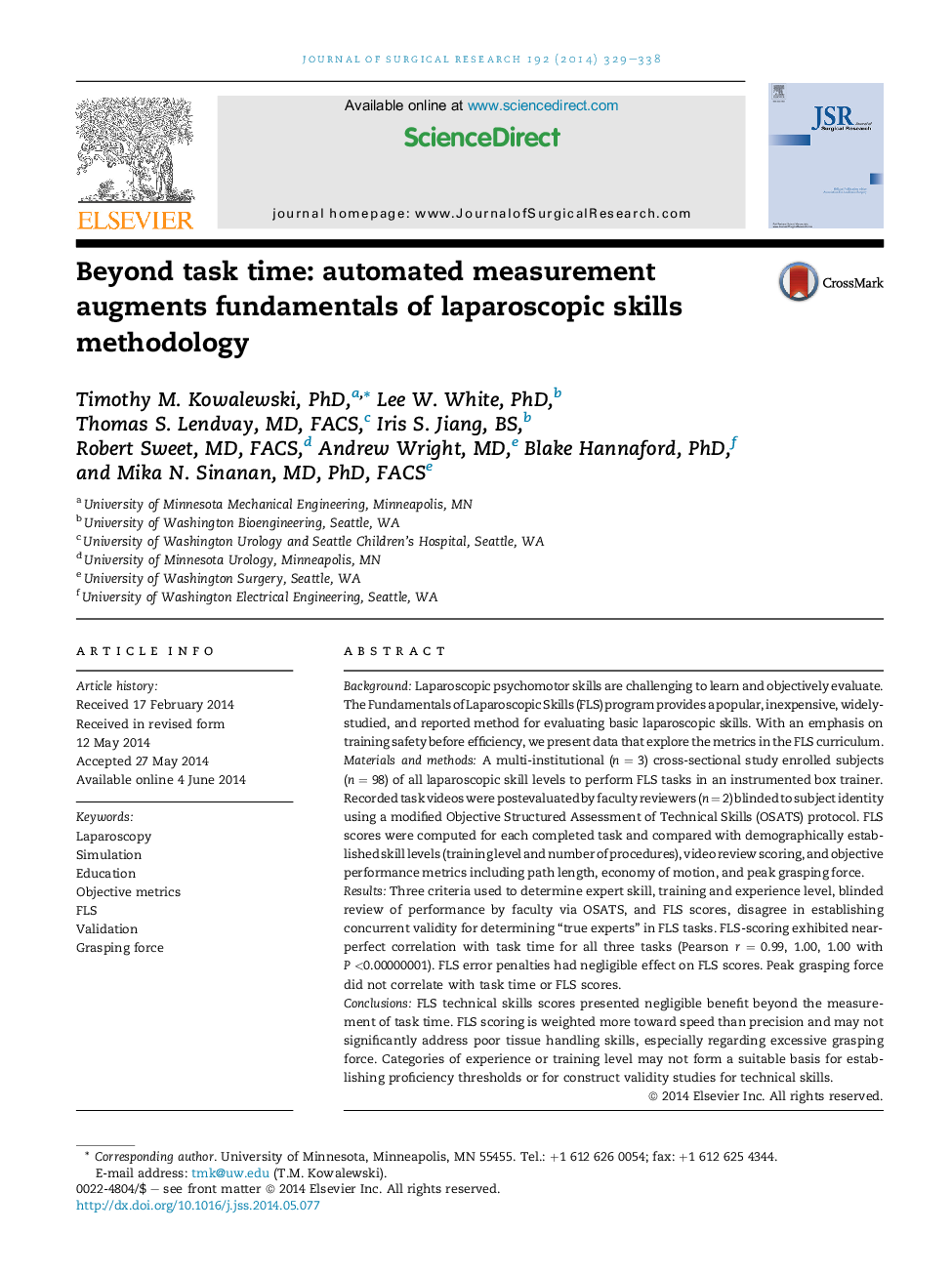| Article ID | Journal | Published Year | Pages | File Type |
|---|---|---|---|---|
| 4300003 | Journal of Surgical Research | 2014 | 10 Pages |
BackgroundLaparoscopic psychomotor skills are challenging to learn and objectively evaluate. The Fundamentals of Laparoscopic Skills (FLS) program provides a popular, inexpensive, widely-studied, and reported method for evaluating basic laparoscopic skills. With an emphasis on training safety before efficiency, we present data that explore the metrics in the FLS curriculum.Materials and methodsA multi-institutional (n = 3) cross-sectional study enrolled subjects (n = 98) of all laparoscopic skill levels to perform FLS tasks in an instrumented box trainer. Recorded task videos were postevaluated by faculty reviewers (n = 2) blinded to subject identity using a modified Objective Structured Assessment of Technical Skills (OSATS) protocol. FLS scores were computed for each completed task and compared with demographically established skill levels (training level and number of procedures), video review scoring, and objective performance metrics including path length, economy of motion, and peak grasping force.ResultsThree criteria used to determine expert skill, training and experience level, blinded review of performance by faculty via OSATS, and FLS scores, disagree in establishing concurrent validity for determining “true experts” in FLS tasks. FLS-scoring exhibited near-perfect correlation with task time for all three tasks (Pearson r = 0.99, 1.00, 1.00 with P <0.00000001). FLS error penalties had negligible effect on FLS scores. Peak grasping force did not correlate with task time or FLS scores.ConclusionsFLS technical skills scores presented negligible benefit beyond the measurement of task time. FLS scoring is weighted more toward speed than precision and may not significantly address poor tissue handling skills, especially regarding excessive grasping force. Categories of experience or training level may not form a suitable basis for establishing proficiency thresholds or for construct validity studies for technical skills.
